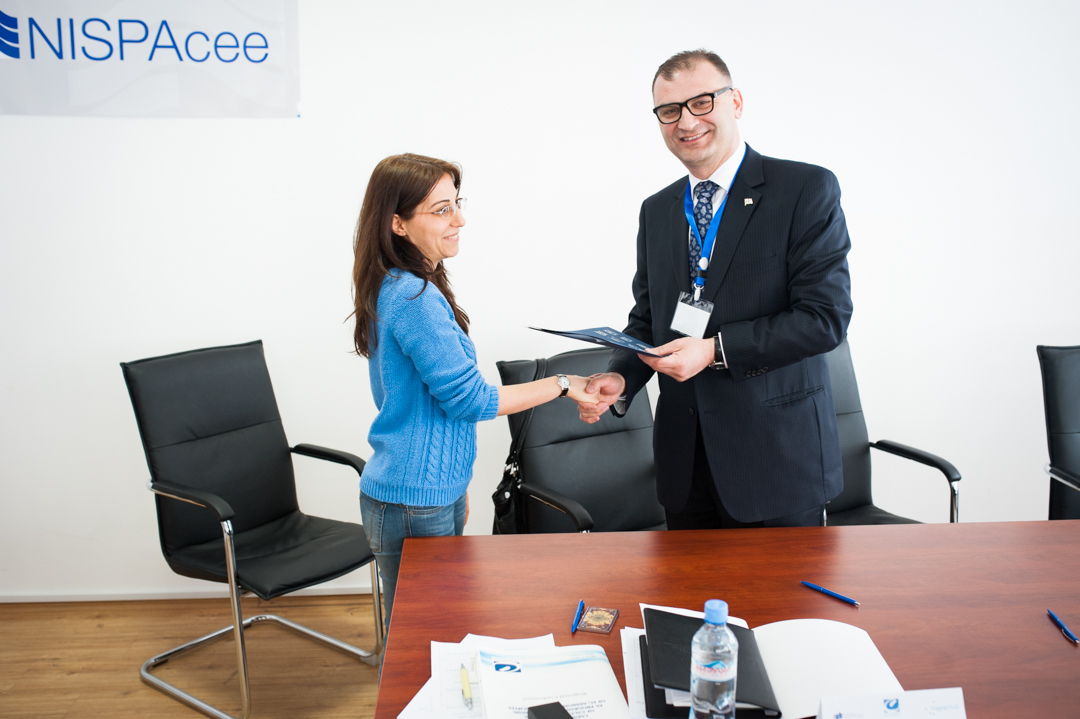Regional conference on Building Democratic Governance on the basis of EU Administrative Principles
The regional conference on Building Democratic Governance on the Basis of EU Administrative Principles in the Caucasus Region was organised by NISPAcee and Caucasus University in Tbilisi, Georgia on March 5, 2015. It was organised in the framework of the project "Capacity Building of Caucasus Academic PA Programmes on the Basis of EU Administrative Principles” supported by the International Visegrad Fund. In the conference participated Approximately 60 participants participated in the conference from Armenia, Azerbaijan and Georgia, mainly from different universities - PA programme lecturers, trainers, researchers, students and also PA officials, representatives of civil society organisations and the media were invited.
Keynote speeches were presented on "Building Democratic Governance in the EU, especially in EU New Member States”, "Building Democratic Governance on the basis of EU Administrative Principles in the Caucasus Region” and "The Role of Education in Building Democratic Governance”.
In the following parts "Quality, Evaluation and Accreditation of Academic Programmes”, "Present Status and Challenges for Caucasus Academic PA Programmes” and "Role of Networking” were presented by project experts from Visegrad and Caucasus countries and widely discussed.
In the final part, two Partnership Agreements were signed between Caucasus partners –the first between Caucasus University, Georgia and the Russian-Armenian University, Armenia and the second one between Caucasus University, Georgia and Khazar University, Azerbaijan. In the Partnership Agreements, cooperation in the following areas was agreed: Exchange of students at all levels of education, Exchange of faculty and staff members, Joint research and consultancy activities, Participation in seminars and academic meetings, Exchange of academic materials and other information of common interest and Exchange and/or cooperation in Special short-term programmes and projects.
After the conference, there was time for individual consultations on curricula development of PA programmes with project experts based upon requests. Representatives of Ilia State University, Caucasus University and the University of Georgia applied for individual consultations and discussed with project experts possible improvements of PA programmes at their universities.








 Price:
Price: 








